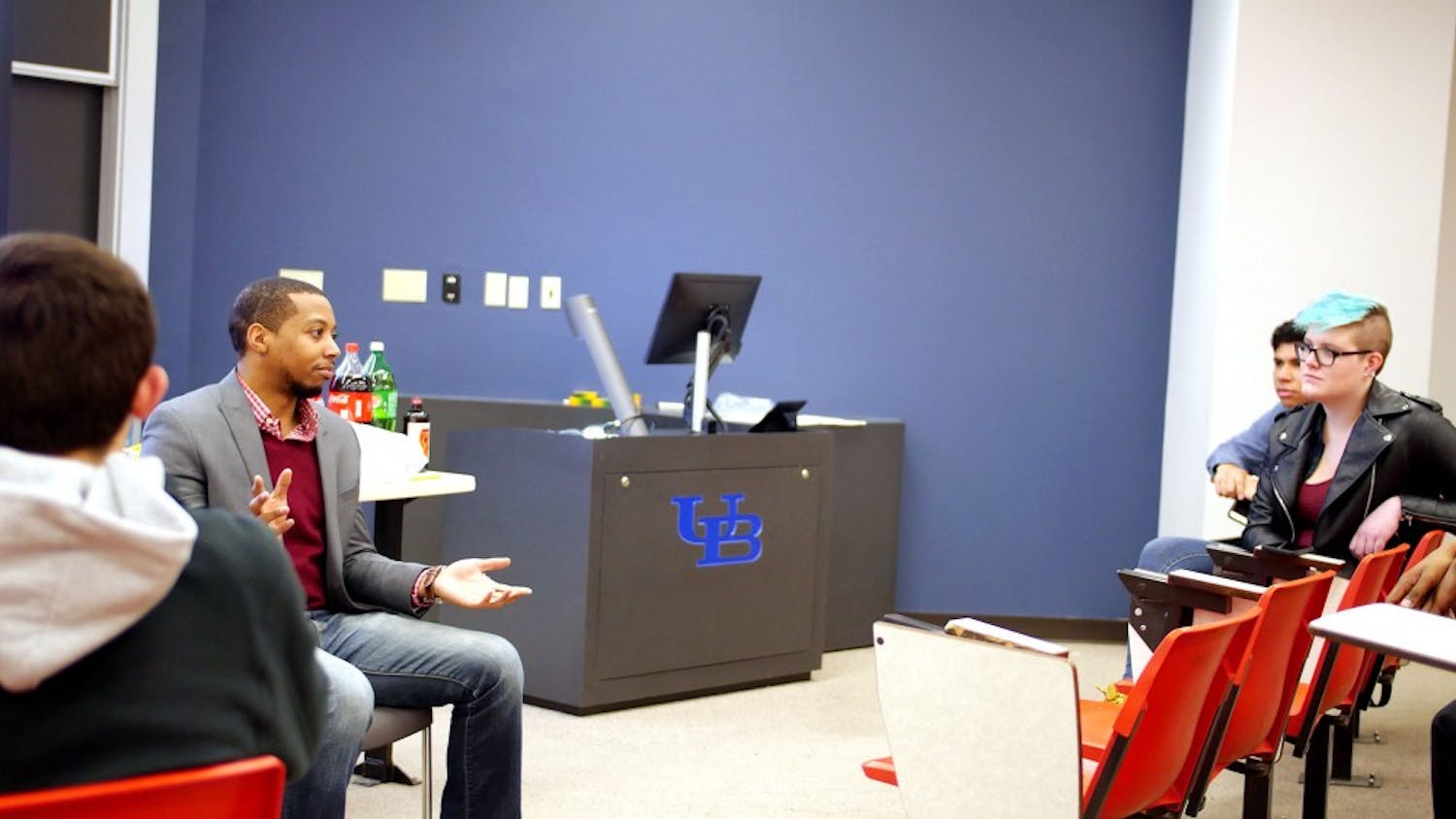When Akanimo Akpan, a 2012 graduate, would take the Stampede from North to South Campus, the bus route passed by his Amherst home. He was "literally a hop, skip and a jump" away from UB.
Hayley Ross, a sophomore international studies and history major, could get into her Toyota Echo and make it to campus in 25 minutes from her house in Hamburg.
But despite growing up a close drive from UB, both locals decided to cut themselves off from the familiar comforts of their childhood homes and dorm on campus in efforts to achieve "the college experience."
About 26 percent of UB's population, including undergraduate and graduate students, lives on campus. With campus housing options running around $6,000-$8,000, the question that a lot of students have to ask themselves is: How much am I willing to spend to experience college? For students who live locally, the answer to that question may not only be the difference of thousands of dollars but thousands of experiences, too.
"Without financial aid, living on campus is more of a luxury for people who live close," Akpan, who is now a graduate student at Ball State University, explained.
He was able to live on campus all four years of undergrad because of his financial aid package. While he admits he is biased toward getting the full "college experience," he said when considering UB's tuition hikes, going to school and living on campus is getting more expensive, and he doesn't think it's necessary.
For Ross, without the decision to live on campus her freshman year, she wouldn't have met the girls that encouraged her decision to join Alpha Gamma Delta, a sorority that focuses on sisterhood. From living on campus, Ross now has a "family" of 62 girls on which she knows she can count. She feels the relationships she built from choosing to live on campus are invaluable.
Ross craved independence and was certain she wanted to live on campus, but she admitted, without her scholarship, she may have considered staying home.
Some commuters have trouble getting past the finances and can't imagine spending the money just for greater convenience. Nicole Ciambor, a freshman undecided major, commutes from West Seneca.
"If I could save so much money, because my mom is not charging me rent, why would I waste my money and come here when I can just live at home?" Ciambor said.
But for Akpan, the experience was worth it. He described UB as its own "living, breathing organism" and that living on campus was like "the perfect vacuum." He felt like he was in a different world - not like he was 15 minutes away from his mom.
Ross, who only goes home once every two months, can relate and so can Sarah Spitznogle, a freshman pre-pharmacy major, who lives in Roosevelt.
"I don't feel like I'm in Williamsville," Spitznogle said. "It's weird. I can see Sweet Home High School from my dorm but it doesn't feel like Amherst. It feels like I am away because you're so consumed in what you have to do in your studying and your friends that you don't really have time to go back to where you live."
Spitznogle went to Williamsville East High School, and her commute to school would only be 12 minutes if she opted to stay at home. She once dreamed of attending the University of Rochester, but the school was too expensive. She came to UB, somewhat dejected, expecting it to be boring because she has lived in the area her whole life. She was shocked to realize she loves living on campus, and she is living in Greiner next year.
She is thankful she can focus on her grades - she has to keep a 3.5 for the pharmacy program - and doesn't have to worry about the distraction of her family; she joked, "We're all kind of loud."
"If a student is able to, we do encourage living on campus," Brian Haggerty, senior associate director of Campus Living, said in an email. "Research demonstrates that students who live on campus earn higher grades and are more likely to graduate than those who do not live on campus."
UB has about 7,300 beds within its on campus housing, according to Michael Koziej, senior associate director for Campus Living.
UB is commonly considered a commuter college because more than half of students live off campus.
Haggerty said students who commute and students who live on campus will likely have a different college experience, but ideally both those experiences are positive.
Seventy percent of freshmen dorm their first year of college, according to Haggerty. Ciambor admits by not dorming, she feels like she is missing out on meeting people and the clich?(c) "college experience." Her best friend on campus is someone she went to high school with.
But not all commuters view not living on campus as a hindrance to their college experience. Laughter and playful banter commonly booms in the Student Union's second floor commuter lounge. While many students enter in and out of the lounge between classes, a solid group of 15 friends have taken to the lounge as their home on campus.
Some of the commuters come from as far as Alden or as close as Kenmore, but they all have created their own commuter-based family within the hangout. Tara Hogan, a junior biological sciences major, doesn't feel like she is missing out of the college experience by not living on campus.
She frequents the lounge and has met a lot of people that way, in addition to being an undergraduate teaching assistant and through her classes.
Hogan feels that regardless of where you live, the college experience is what students decide to make it. And while she, and most of the other commuters are quick to groan at the mention of parking, she said for her, the high cost of living on campus wasn't worth the convenience.
Sometimes people question Spitznogle, asking her why she is opting to live on campus. She avoids the argument. For her, it isn't worth the fight. She thinks it a personal decision that's different for everyone.
Email: news@ubspectrum.com





